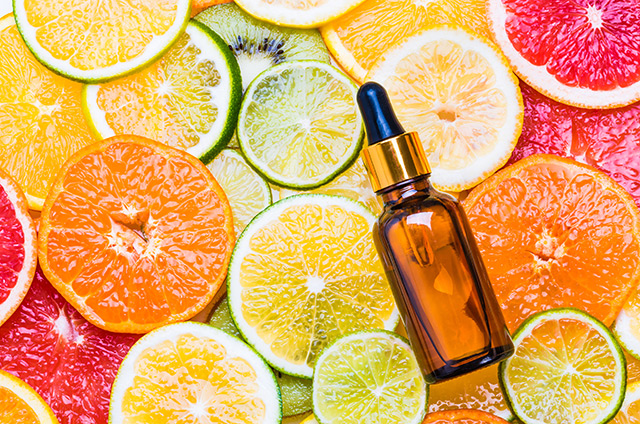Pomelos found to be a great natural insecticide
11/02/2018 / By Ralph Flores

In the U.S., winter is the start of a lot of things: snow, the holiday season, and – for those who like it – citrus. While most people know citrus as one of the most abundant sources of vitamin C, researchers in the Philippines have found a certain type of citrus fruit to be particularly effective in controlling the spread of dengue fever. In their study, published in the Indian Journal of Natural Products and Sciences, they identified the pomelo fruit (C. grandis) to have toxic effect against the dengue vector Aedes aegypti, making it a natural alternative to synthetic insecticides.
Dengue hemorrhagic fever, better known as dengue fever, is one of the primary causes of illness and death in the tropics and subtropics, with over 400 million people infected annually. It’s a disease spread by a vector, in this case, A. aegypti — a mosquito common in the Western hemisphere. While cases of dengue are rare in the contiguous United States, it’s endemic to many popular tourist destinations including Puerto Rico, Southeast Asia, and Latin America.
In the study, the researchers highlighted the need to look for natural ways to address this rising epidemic, given the adverse effects that synthetic insecticides have on the environment and human health. A negative outcome they identified is the increased resistance of insects and pests to the active ingredients in the insecticides. They identified the pomelo plant as a potential vector control measure against A. aegypti, and they investigated that ovicidal, larvicidal, and adulticidal toxicity of extracts from pomelo peels which were collected in different areas in the Philippines.
The team used a hexane extract obtained from the peels of the fruit to conduct bioassays on the eggs and larvae of A. aegypti and a knockdown test for adult mosquitoes. They found that the extracts were potent larvicidal agents, as it effectively targeted mosquitoes at the larval stage at a median lethal concentration of 1.11 mg/L, a value significantly lower than the threshold of 1,000 mg/L.
Regarding its knockdown ability, the team found that the hexane extract only took a little over 10 minutes to take effect and knock down over half of the mosquitoes in the sample population. It took only half an hour after exposure to the extract for most of the mosquitoes to be knocked down, and the team noted a 100 percent mortality rate after 24 hours.
As for its effects on the eggs of A. aegypti, the hexane extract was lethal at a concentration of 13.84 mg/L, making it effective even at small doses.
“The remarkable toxic effects exhibited by C. grandis peels against the eggs, larvae, and adults of A. aegypti signifies its potential as a more effective, eco-friendly, and target-specific control for the dengue vector,” the researchers concluded in their report. (Related: 7 Best Plants that Repel Mosquitoes for Summer Outdoor Parties.)
Growing mosquito-repelling plants
It’s not just pomelos that mosquitoes hate. There are a variety of plants available that are effective in keeping mosquitoes at bay. The best part? They’re incredibly easy to grow and maintain. (h/t to Learn.EarthEasy.com)
- Citronella. It’s a common ingredient for all natural mosquito repellents for good reason: Its distinctly strong smell masks other scents that mosquitoes may be attracted to. Most gardening centers sell citronella as small plants in pots, which can be directly planted in the ground (if frost does not occur), or grown in a planter and rolled indoors during winter. When buying citronella, look for the varieties Cymbopogon nardus or C. winterianus, as these have the mosquito-repellent properties of true citronella.
- Horsemint. Another plant which repels mosquitoes using its distinct smell, horsemint can be grown in dry, sandy soil and is often found in coastal or beach areas. In areas with colder climate zones, it’s best to plant horsemint in late summer. It’s not just for keeping mosquitoes at bay: Horsemint leaves can be dried and used for tea, while its flowers can attract bees and butterflies if it’s planted in a garden.
Read more natural ways to control dengue at NaturalCures.news.
Sources include:
Tagged Under:



















